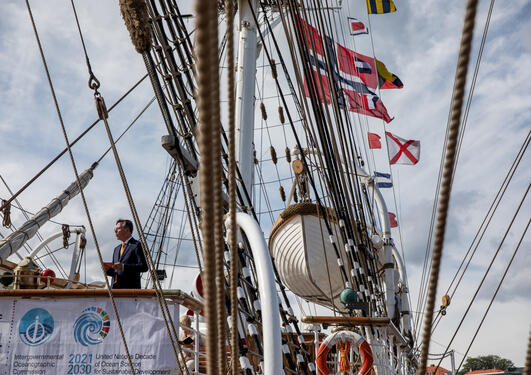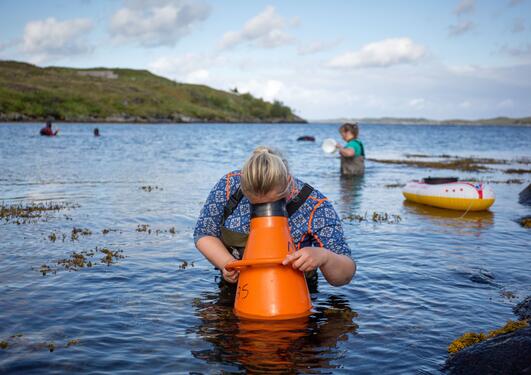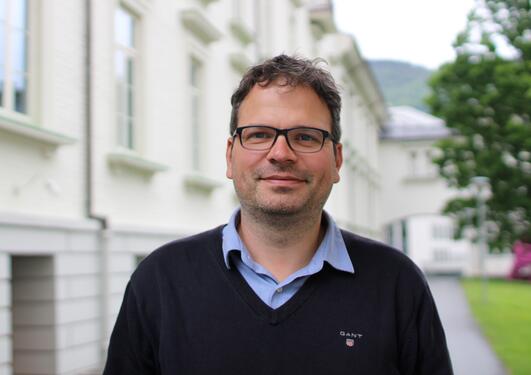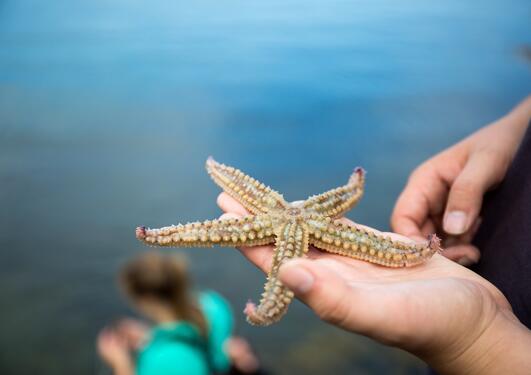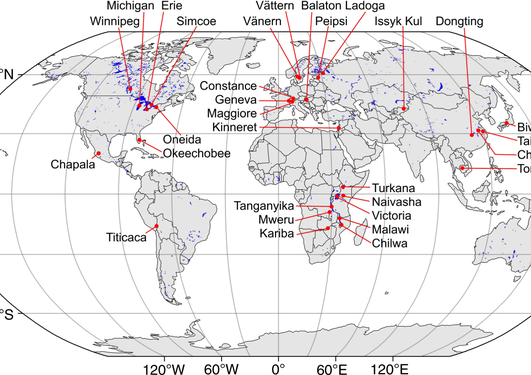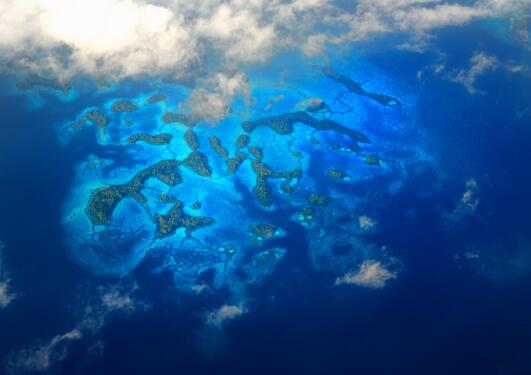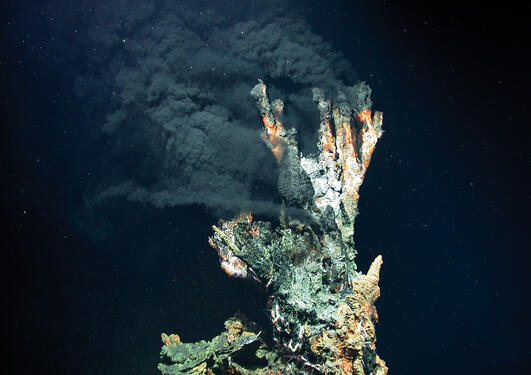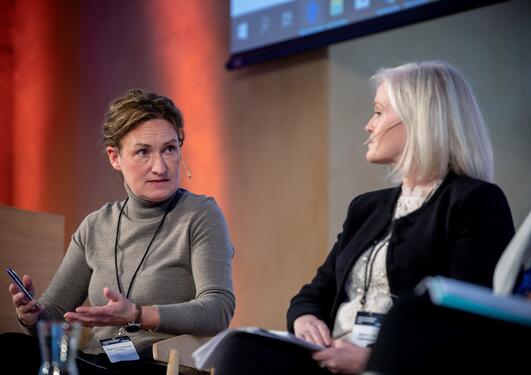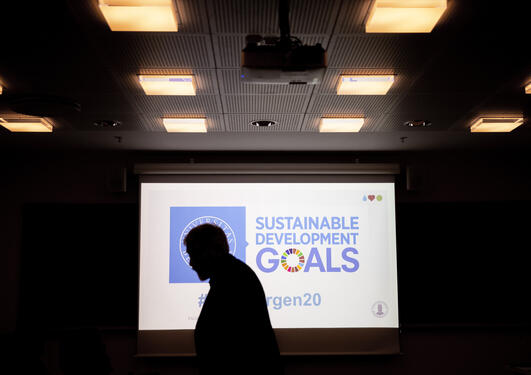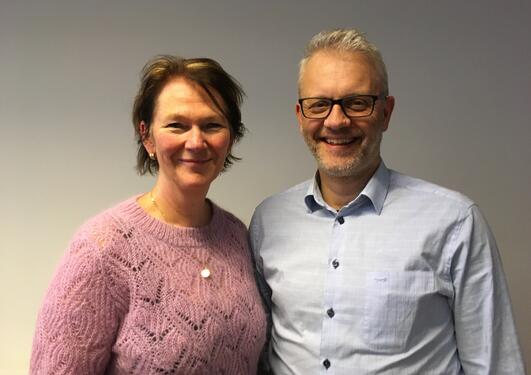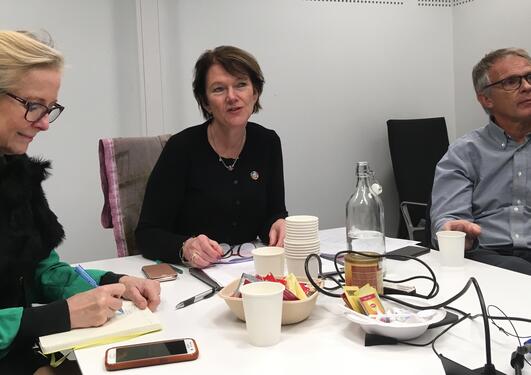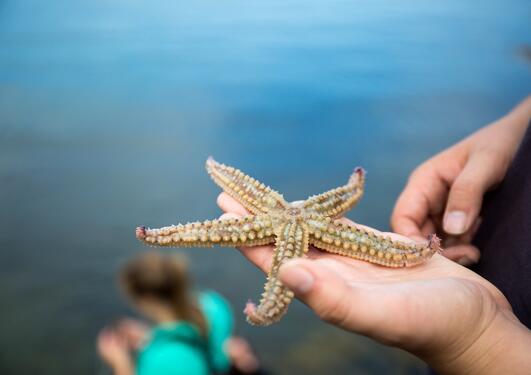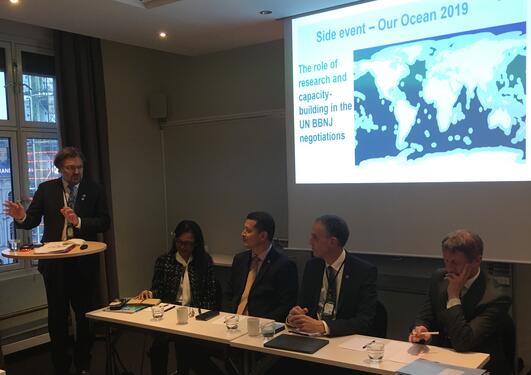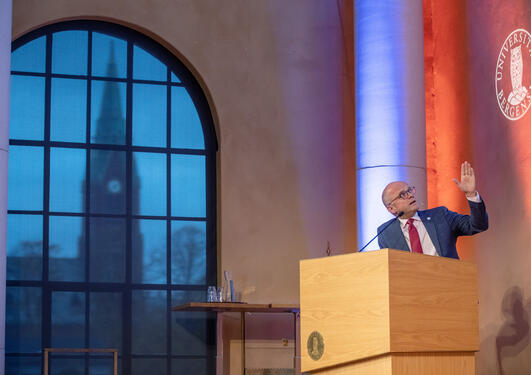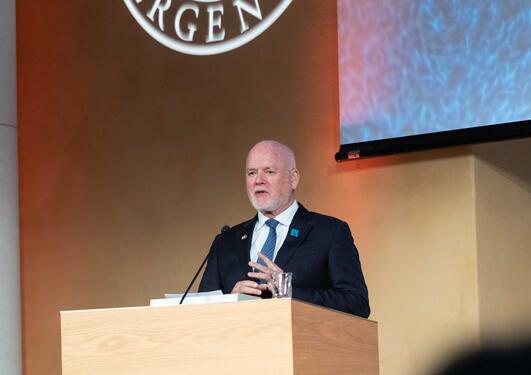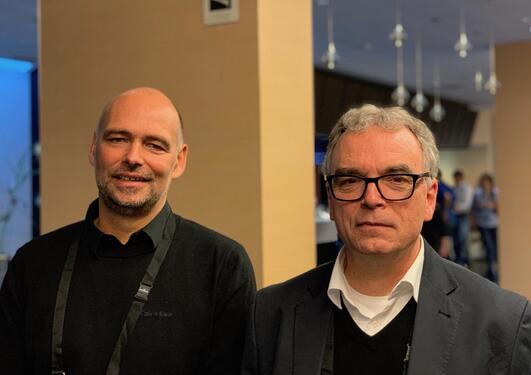News archive for Ocean
Ocean science is at the core of the University of Bergen’s science diplomacy activities. By juxtaposing the 17 goals of the 2030 Agenda, the university and its partners are quietly providing policymakers with research-based knowledge for global sustainability.
“The ocean has enormous potential. It's not only that we can, but also because we have to produce more from the ocean if we are to avoid climate change,” said Vidar Helgesen aboard tall ship Statsraad Lehmkuhl on World Ocean Day.
The University of Bergen’s interdisciplinary SDG14 course educates the future ocean science leaders to engage critically with the 2030 Agenda.
Reporting on ocean acidification data directly targeting the Sustainable Development Goals is all in a day’s work for Benjamin Pfeil and his data group at the University of Bergen.
In October 2018 the University of Bergen was given a lead role on SDG14, Life below water, by United Nations Academic Impact. Now the university has been asked to present a four-part series for inspiration on ocean research and education. The UN distributes the series globally.
How do climate and land-use changes influence fish catch in lakes? That has been at the centre of a major international study which urges policymakers to increase funding for land and water management to create a more sustainable fisheries industry.
The new Norway-Pacific Ocean-Climate Scholarship Programme builds on long-term collaboration between two ocean and climate oriented universities, which includes a voluntary commitment at the inaugural UN Ocean Conference.
How does life thrive there without photosynthesis? The diversity of marine life in these systems is surprising.
In the world today, malnutrition is a bigger problem than hunger. Researchers hope that a small freshwater fish may prove to be packed with important micronutrients.
In a meeting on biological diversity on the high seas, scientists and other actors gave valuable advice to representatives from Norway’s Ministry of Foreign Affairs before final negotiations on regulation of natural resources outside of national jurisdiction.
The SDG Bergen Policy Briefs series was presented to researchers gathered for a workshop on science diplomacy at the 2020 SDG Conference Bergen.
Four SDG14 targets are maturing in 2020 and with the University of Bergen's leadership in ocean science and sustainability, the university will take these targets to decision-makers over the course of the upcoming year.
In November 2018 the University of Bergen was officially announced as the leader of the SDG14 Cluster for the International Association of Universities (IAU). In November 2019 the IAU SDG14 Cluster met for the first time – at least virtually.
On UN Day 2018 – 24 October, the University of Bergen was announced as the official UNAI Hub for SDG14 – Life below water. One year on, we reflect upon our activities in the year gone and present some of our future plans.
In partnership with Palau's UN Mission and IOC-UNESCO, the University of Bergen arranged a side event at Our Ocean to discuss the science necessary to secure marine biodiversity beyond national jurisdiction as part of international law.
190 scientists, students and ocean enthusiasts gathered in the University Aula for the inaugural Ocean Sustainability Bergen Conference and speeches on current research and inspirational speeches on a sustainable ocean.
“A new deal for nature is on everyone's lips,” said Ambassador Peter Thomson in his public lecture after becoming an honorary doctor at the University of Bergen.
What are our safe operating spaces for the ocean? This is the starting question for the new EU Horizon 2020 project COMFORT.
Pages
- October 2025 (1)
- August 2025 (2)
- July 2025 (1)
- June 2025 (1)
- April 2025 (1)
- March 2025 (1)
- February 2025 (3)
- January 2025 (1)
- October 2024 (2)
- September 2024 (4)
- August 2024 (3)
- June 2024 (3)
- May 2024 (1)
- April 2024 (2)
- March 2024 (5)
- February 2024 (2)
- December 2023 (1)
- November 2023 (2)
- October 2023 (1)
- September 2023 (2)
- August 2023 (2)
- July 2023 (1)
- June 2023 (3)
- April 2023 (3)
- March 2023 (1)
- February 2023 (1)
- January 2023 (1)
- November 2022 (1)
- October 2022 (1)
- June 2022 (2)
- April 2022 (3)
- March 2022 (1)
- February 2022 (1)
- December 2021 (1)
- November 2021 (2)
- October 2021 (3)
- July 2021 (1)
- June 2021 (4)
- May 2021 (1)
- April 2021 (1)
- March 2021 (3)
- February 2021 (2)
- January 2021 (1)
- December 2020 (2)
- November 2020 (2)
- October 2020 (2)
- August 2020 (2)
- July 2020 (1)
- June 2020 (6)
- May 2020 (2)
- April 2020 (2)
- March 2020 (2)
- February 2020 (1)
- January 2020 (1)
- November 2019 (1)
- October 2019 (5)
- September 2019 (2)
- August 2019 (1)
- July 2019 (3)
- June 2019 (1)
- May 2019 (2)
- March 2019 (1)
- February 2019 (1)
- January 2019 (1)
- November 2018 (2)
- October 2018 (2)
- September 2018 (2)
- August 2018 (2)
- June 2018 (1)
- May 2018 (2)
- April 2018 (1)
- February 2018 (1)
- January 2018 (1)
- December 2017 (1)
- November 2017 (3)
- June 2017 (4)

